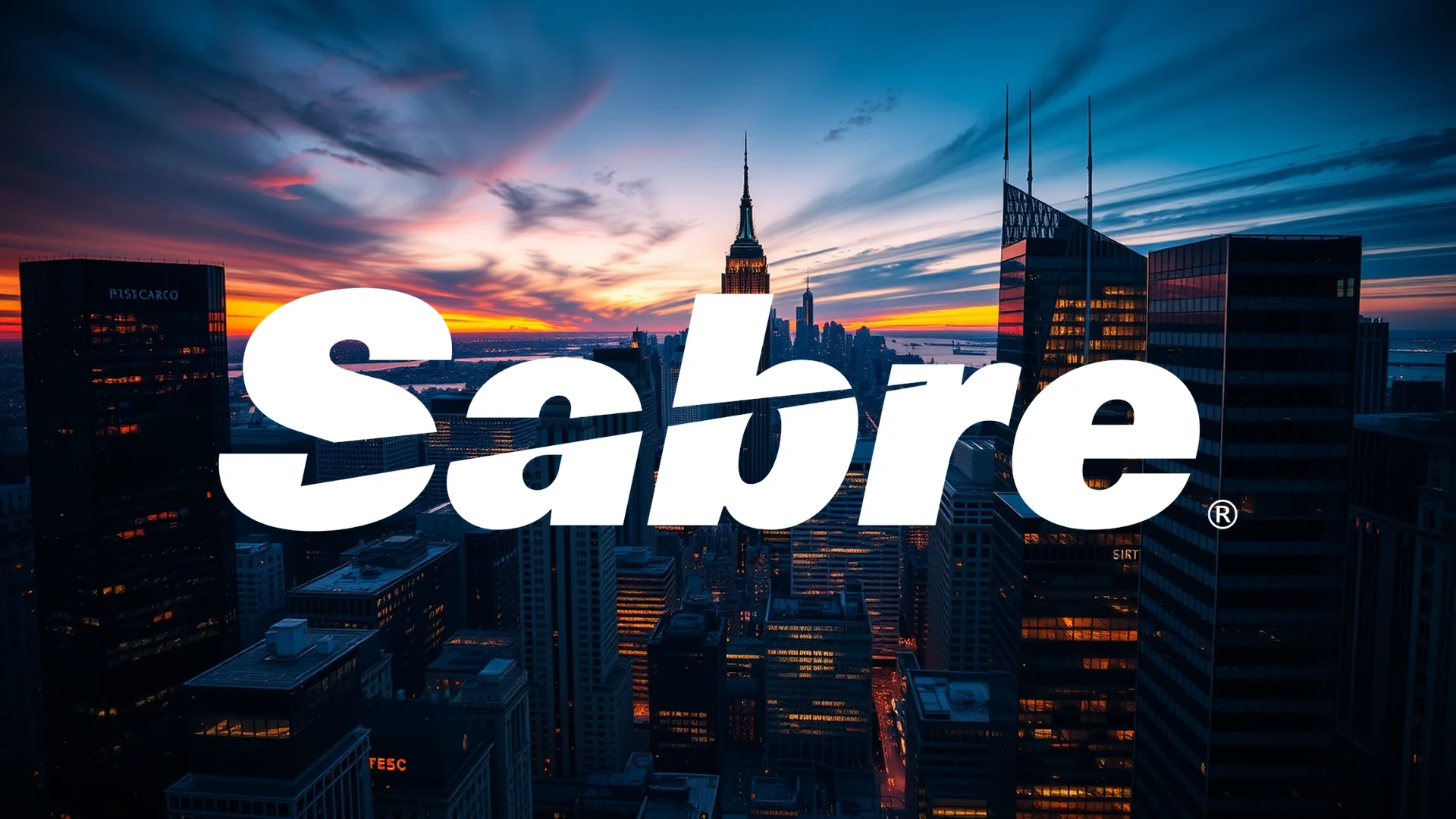Sabre Corporation finds itself navigating turbulent waters as the travel technology sector experiences widespread volatility. The company faces a perfect storm of significant debt burdens, disappointing quarterly performance, and fundamental questions about the long-term viability of traditional booking systems in today’s evolving travel ecosystem.
Q2 2025 Performance Sparks Investor Concerns
The second quarter of 2025 delivered devastating results for Sabre, with performance metrics falling substantially below market expectations. Investor reaction was swift and severe: the company’s stock plummeted approximately 40 percent following the earnings release.
Key metrics revealed a concerning one percent year-over-year decline in airline booking volumes. This performance stands in stark contrast to competitor Amadeus, which managed to maintain growth during the same period. CEO Kurt Ekert characterized the downturn as market-related rather than structural, though the financial results tell a challenging story.
The Direct Connection Controversy Intensifies
Amid industry shifts toward direct connections between airlines and customers, Sabre has mounted a vigorous defense of its traditional distribution model. In a notable September 18, 2025 press release, the company presented data challenging the perceived advantages of direct booking systems:
Should investors sell immediately? Or is it worth buying Sabre?
- Pricing Benefits? Sabre’s analysis indicates that over 90 percent of search queries show equivalent or lower pricing compared to direct connections
- Enhanced Content? The underlying technology of direct APIs does not fundamentally differ from Sabre’s existing infrastructure
- Streamlined Operations? 91 percent of travel agencies currently manage four or more booking systems, suggesting increasing market fragmentation rather than simplification
Market Analysts Maintain Cautious Stance
Investment research firms remain largely unconvinced about Sabre’s near-term prospects. Among six covering analysts, the consensus recommendation stands at “Hold,” with price targets ranging between $2.76 and $3.80—significantly above current trading levels but still reflecting considerable caution.
Morningstar analysts estimate the stock trades approximately 38 percent below their calculated fair value of $3 per share, while acknowledging the company maintains a “narrow economic moat.” Management targets reducing net debt to EBITDA ratio to six times by year-end 2025.
The company faces substantial hurdles, however. Second-quarter revenue of $687 million fell well short of the $718 million analysts had projected. Particularly concerning was the performance of Sabre’s IT Solutions division, which experienced a 15.1 percent contraction.
Sabre’s future strategy hinges on its SabreMosaic Travel Marketplace platform, designed to aggregate content from more than 600 travel providers. Whether this initiative can successfully counter market fragmentation pressures while managing the company’s multibillion-dollar debt load remains the critical question for concerned investors.
Ad
Sabre Stock: Buy or Sell?! New Sabre Analysis from February 7 delivers the answer:
The latest Sabre figures speak for themselves: Urgent action needed for Sabre investors. Is it worth buying or should you sell? Find out what to do now in the current free analysis from February 7.
Sabre: Buy or sell? Read more here...










